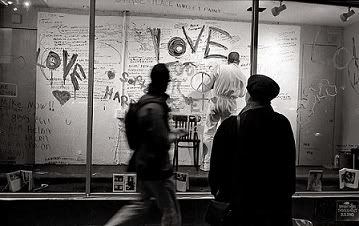
Talking Point #10 - - Privilege, Power, and Difference: What Can We Do?
By Allan Johnson
Premise:
- change
- discrimination
- problems--solutions
- responsibility
- power
- oppression
- acknowledgment
- difference
- learning
- listening
- attitudes
- solutions
Johnson argues that there needs to be a change in our society where people become more aware of the problems that deal with privilege and power. We can change as long as we can be aware and take the responsibility that there needs to be changes made.
Evidence:
- "Once we can see and talk about what's going on, we can analyze how it works as a system. We can identify point of leverage where change can begin" (126).
- "...We need to clarify for ourselves how our choices matter and how they don't" (132).
- "Listen to what is being said. Take it seriously. Assume for the time being that it's true, because given the power of paths of least resistance, it probably is. And then take the responsibility to do something about it" (140).
- " Make noise, be seen" (144).
- "Start where you are and work from there" (153).
- "Taking responsibility doesn't have to involve guilt and blame, letting someone off the hook, or being on the hook yourself. It simply means acknowledging an obligation to make a contribution to finding a way out of the trouble we're all in and to finding constructive ways to act on that obligation" (153).
I already liked the piece that we read at the beginning semester about Johnson so this easily caught my attention. What I like about Johnson is he is very straight forward and real. I think his argument is correct, we need to become more aware and get other people aware so that we can solve the problem together, two is better than one. I like how he organizes his reading by myths and other subtitles, for example "Learn to Listen" because they capture my attention.
I also wanted to add (since this is our last blog) how much I enjoyed being in this class. FNED has opened my mind to the problems and solutions of our society and school systems. I know it will definitely help me become a better teacher and even a better person.







1 comment:
I;m glad this class really resonated with you, Tiffany!
LB :)
Post a Comment